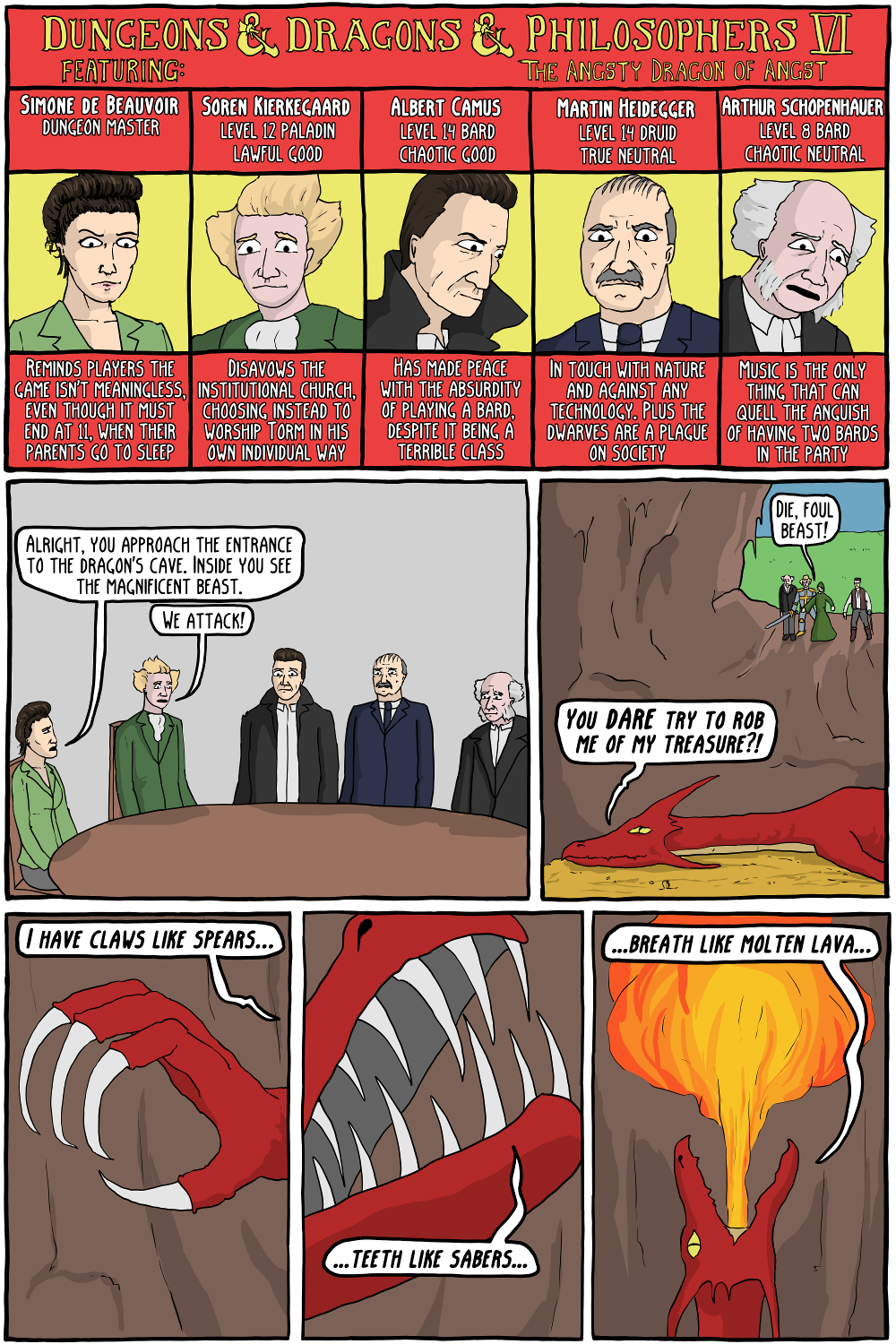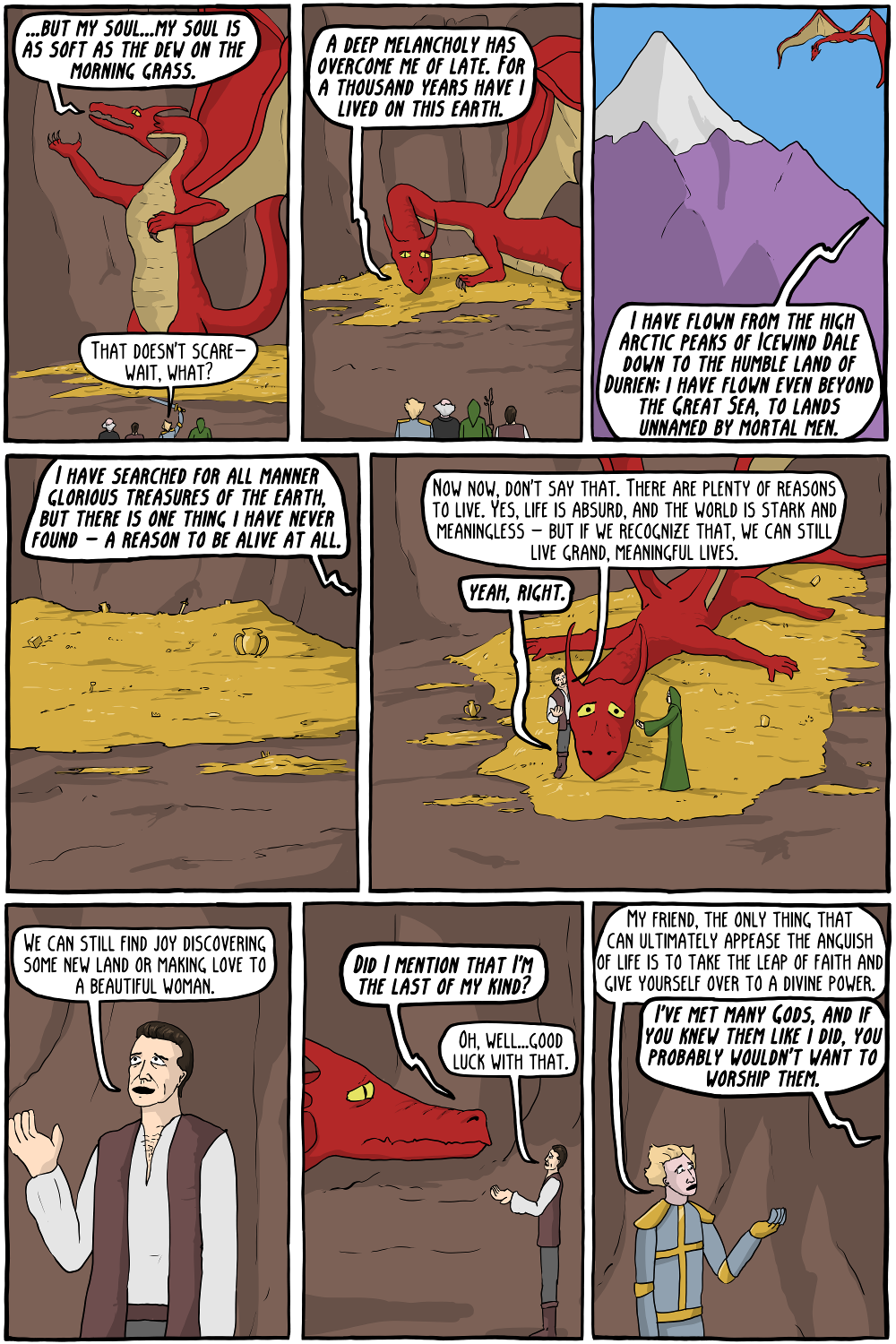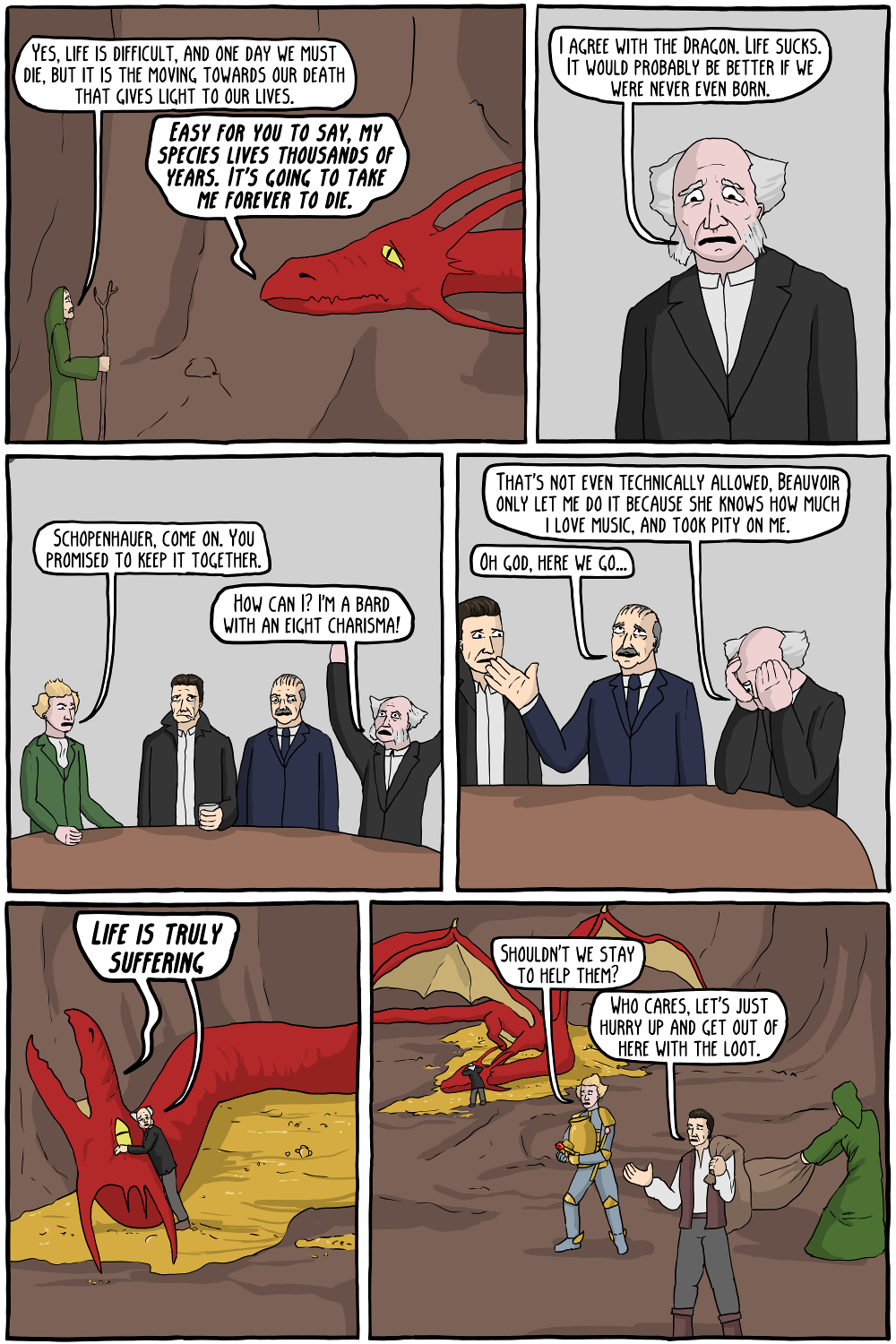


All the philosophers chosen were pretty angsty themselves too.
Simone de Beauvoir struggled immensely with the brevity of life, and the 'abandonness' of finding yourself forced to decide what to do with the short time we have, with no ultimate guidance from anything. In All Men are Mortal, her most angsty novel, the main character drinks a potion and becomes immortal (he can't even be killed). He tries to conquer the world in order to make it "completely rational", and a paradise on earth for all mankind. Eventually he becomes disillusioned, realizing that such a dream is not only practically impossible, but contradictory, and each individual group of people have to decide for themselves how they want to live. The unlikely hero of the story is perhaps a radical Lutheran priest who, when asked why he doesn't repent in order to avoid being burned at the stake, says simple that we all must follow our own conscience.
Kierkegaard was possibly the angstiest philosopher who ever lived. He's got a ton of super emo quotes like "My depression is the most faithful mistress I have known - no wonder, then, that I return the love." Ultimately, he thought the only true escape from anguish was to take the "leap of faith" into religion. Whether this worked out for him we can't really say, because he seemed to produce angsty quotes his entire life.
Camus thought that life was fundamentally absurd and meaningless. Luckily, if you are cool enough like Camus, you can revolt against this absurdity by sleeping with a bunch of women or something. Seriously though, Don Juan was one of his examples of an absurd hero in The Myth of Sisyphus. Actually he was the first example, and you sort of get the feeling that the others were added just to make it look like that wasn't his only idea. Lucky for Camus, I guess, he was the sexiest philosopher in history, by a fairly wide margin.
Heidegger thought that the authentic life had to be oriented as a project of "being-towards-death". Our life and actions are moving towards certain possibilities, but the ultimate possibility is always death, so we should live in anticipation of death. This causes anxiety and angst, but in a good way or something. I don't really know, you can read about it here, but Heidegger isn't easy. He also hated Jews, which is what the joke about Dwarves meant. Some people think making "Heidegger was antisemitic" jokes is tired and lame, but I mean, it isn't as lame as literally joining the Nazi party, so whatever.
And lastly we have Schopenhauer, undoubtedly the biggest sad-sack philosopher ever. He was an antinatalist, believing that life was literally not worth living. He thought if you added up all the suffering and happiness in a life it would be a negative value, and we should spare future generations the bother. He said that life basically oscillated between suffering and boredom. We suffer when we don't get what we desire, but as soon as we get it we are bored of it. The only thing that could sort of quell this suffering was music. But it couldn't be just any music that is nice to listen to, it had to be something powerful enough to draw out the sublime beauty of existence, like The Immigrant Song, by Led Zepplin probably.
Oh, and Bards suck in D&D.
Permanent Link to this Comic: https://existentialcomics.com/comic/127
Support the comic on Patreon!










